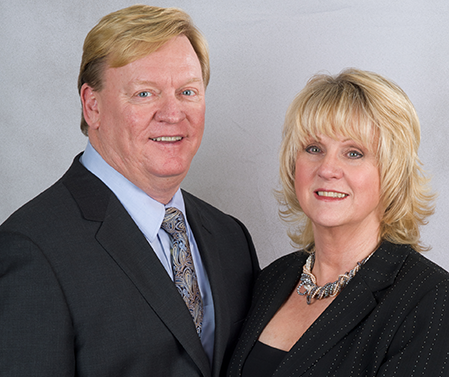How to Prevent Medi-CAL Estate Recovery!
Do not rely on any other professional or other type of attorney as you may not get the correct information! Elder Law Attorney, Joseph McHugh and his wife Kathy McHugh (Triage Director & Medi-Cal Expert) are happy to discuss your options and risks with Medi-Cal laws.
You have paid taxes for many years supporting Medi-Cal and other government programs, and we help you legally get some of that back when Medi-CAL is needed and then you want to make sure Medi-CAL cannot recover against your hard-earned assets when you die. We can help with this legally!
Call for consultation: (818) 241-4238. Or you can submit this form to request a consultation.

Situations When Medi-CAL Estate Recovery Is Not Allowed
The Medi-CAL Estate Recovery Rules in California changed as of January 1, 2017.
1. Surviving Spouse/Registered Domestic Partner
If the Medi-Cal recipient is survived by a spouse or a registered domestic partner, a recovery claim is prohibited and forever barred. However, if the surviving spouse or registered domestic partner also received Medi-Cal services subject to recovery, his/her estate can be subject to an estate claim after his/her death if there are any assets that must go through the Probate Courts.
2. Surviving Minor/Disabled Children
If the Medi-Cal recipient is survived by a minor child (under age 21) or a disabled child of any age (adult disabled child), the state cannot recover, and a claim is forever barred. The child does not need to be living with the Medi-Cal recipient or be an heir to the estate. The disability needs to be proven!
3. Estate Recovery Limited To Probate Estate
 The state can make a claim against the Medi-Cal recipient’s estate for the Medi-Cal benefits paid or the value of the estate, whichever is less. For those who die on or after January 1, 2017, Medi-Cal Estate Recovery is limited to those estates that are subject to Probate under California law.For example, assets transferred via living trusts, joint tenancies, survivorship, and life estates will no longer be subject to recovery.
The state can make a claim against the Medi-Cal recipient’s estate for the Medi-Cal benefits paid or the value of the estate, whichever is less. For those who die on or after January 1, 2017, Medi-Cal Estate Recovery is limited to those estates that are subject to Probate under California law.For example, assets transferred via living trusts, joint tenancies, survivorship, and life estates will no longer be subject to recovery.
Having just a WILL, however, depending on the value of the estate, is usually subject to Probate in California. It is best to talk to an elder law attorney about this to ensure your assets are not recoverable.
Current Probate threshold amount in 2023 is $184,500 in assets held in a person’s name only real property or financial accounts without beneficiaries or co-owners.
4. Why Put Assets Into A Trust?
If your house and other assets are assigned into a Revocable Living Trust, your home and assets are not subjected to PROBATE and under current California law, Medi-Cal cannot recover assets.
5. Assets Protected From Medi-Cal Estate Recovery (Assets SET UP So Not Subject To Probate):
The following are ways to prevent Probate and Medi-Cal Estate Recovery:
- Setting up a trust… Your living trust holds all your property (real estate and financial accounts) that can be subject to Probate and defines how and when certain assets will be distributed after death.
- Life insurance policies with a designated beneficiary are exempt from probate, so the policy is paid out to beneficiary upon the decedent’s death.
- When you own a property with someone else and you can have the Right of Survivorship (Joint Tenants), when one owner dies, the other will get to keep the entire property.
- When a Pay On Death account is created, the owner identifies beneficiaries who will receive the balance of the account when the owner passes away.
- Making beneficiaries to your IRA accounts, ownership transfers automatically to that beneficiary without being subject to the probate process.
NOTE!:
- The Medi-Cal Estate Recovery Unit will occasionally send out questionnaires to families implying that they are under a legal obligation to complete and return them.
- There is no legal obligation to return this form to Medi-CAL. Legally, the only obligation the family of a Medi-Cal beneficiary has is to send a notice of death and a copy of the death certificate and a copy of the checking account for the day of death when a deceased Medi-Cal beneficiary or the spouse of a deceased beneficiary dies.
- If you wish, we can communicate with Medi-Cal Estate Recovery for your family, so you do not have to deal with this after the death of a loved one that was a Medi-CAL recipient.
The best way to avoid an estate claim is to leave nothing in the individual name of Medi-CAL recipient. We can help you!
Call for consultation: (818) 241-4238. Or you can submit this form to request a consultation.
